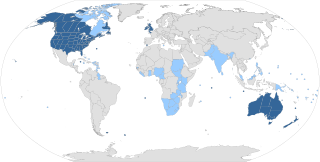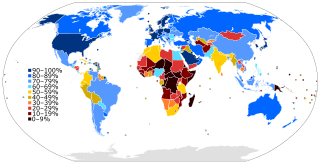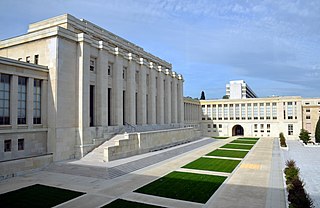 W
WCultural globalization refers to the sharing of ideas, meanings, hobbies and values around the world in such a way as to extend and intensify social relations. This process is marked by the common consumption of cultures that have been diffused by the Internet, popular culture media, and international travel. This has added to processes of commodity exchange and colonization which have a longer history of carrying cultural meaning around the globe. The circulation of cultures enables individuals to partake in extended social relations that cross national and regional borders. The creation and expansion of such social relations is not merely observed on a material level. Cultural globalization involves the formation of shared norms and knowledge with which people associate their individual and collective cultural identities.
 W
WCocacolonization refers to the globalization of American culture pushed through popular American products such as soft drink maker Coca-Cola. It is a portmanteau of the name of the multinational soft drink maker and "colonization".
 W
WThe digital divide refers to the gap between those able to benefit from the digital age and those who are not. The concern is that people without access to the Internet and other information and communication technologies will be disadvantaged, as they are unable or less able to obtain digital information, shop online, participate democratically, or learn skills and offer skills. This resulted in programs to give computers and related services to people without access.
 W
WThe digital divide is an economic and social inequality with regard to access to, use of, or impact of information and communication technologies (ICT). Factors causing the divide can vary depending on the country and culture, as can the potential solutions for minimizing or closing the divide.
 W
WEnglish is a West Germanic language first spoken in early medieval England, which has eventually become the leading language of international discourse in the 21st century. It is named after the Angles, one of the ancient Germanic peoples that migrated to the area of Great Britain that later took their name, England. Both names derive from Anglia, a peninsula on the Baltic Sea. English is most closely related to Frisian and Low Saxon, while its vocabulary has been significantly influenced by other Germanic languages, particularly Old Norse, as well as Latin and French.
 W
WThe global digital divide describes global disparities, primarily between developed and developing countries, in regards to access to computing and information resources such as the Internet and the opportunities derived from such access. As with a smaller unit of analysis, this gap describes an inequality that exists, referencing a global scale.
 W
WAn international organization is an organization established by a treaty or other instrument governed by international law and possessing its own legal personality, such as the United Nations, the World Health Organization and NATO. International organizations are composed of primarily member states, but may also include other entities, such as other international organizations. Additionally, entities may hold observer status.
 W
WThe Internet is the global system of interconnected computer networks that uses the Internet protocol suite (TCP/IP) to communicate between networks and devices. It is a network of networks that consists of private, public, academic, business, and government networks of local to global scope, linked by a broad array of electronic, wireless, and optical networking technologies. The Internet carries a vast range of information resources and services, such as the inter-linked hypertext documents and applications of the World Wide Web (WWW), electronic mail, telephony, and file sharing.
 W
WInternet science is an interdisciplinary science that examines all aspects of the co-evolution in Internet networks and society. It works in the intersection of and in the gaps among a wide range of disciplines that have had to respond to the impact of the Internet on their 'home turf' and/or offer specific conceptual or methodological contributions. These include many natural sciences, social sciences, humanities and some existing interdisciplines that cross traditional Faculty boundaries. Professor Noshir Contractor and others have located it at the intersection of computational social science, network science, network engineering and Web science. By understanding the role of society in shaping Internet networks and being shaped by them Internet science aims to take care of the Internet in a way similar to that in which Web science aims to take care of the Web. The lingua franca in this interdisciplinary area include Internet standards and associated implementation, social processes, Internet infrastructure and policy.
 W
WThe Occupy movement was an international progressive socio-political movement that expresses opposition to social and economic inequality and to the lack of "real democracy" around the world. It aims primarily to advance social and economic justice and new forms of democracy. The movement has had many different scopes, since local groups often had different focuses, but its prime concerns included how large corporations control the world in a way that disproportionately benefits a minority, undermines democracy and causes instability.
 W
WTransnational organized crime (TOC) is organized crime coordinated across national borders, involving groups or markets of individuals working in more than one country to plan and execute illegal business ventures. In order to achieve their goals, these criminal groups use systematic violence and corruption. Common transnational organized crimes include conveying drugs, conveying arms, trafficking for sex, toxic waste disposal, materials theft and poaching.
 W
WThe UNESCO Public Library Manifesto is a document approved by UNESCO in 1949 and renovated in Paris on 29 November 1994. Even proclaims the entity's belief towards public libraries internationally, as essential institutions for the promotion of peace and well -being spirit of humanity.
 W
WIn demographics, the world population is the total number of humans currently living, and was estimated to have reached 7,800,000,000 people as of March 2020. It took over 2 million years of human prehistory and history for the world's population to reach 1 billion, and only 200 years more to reach 7 billion.